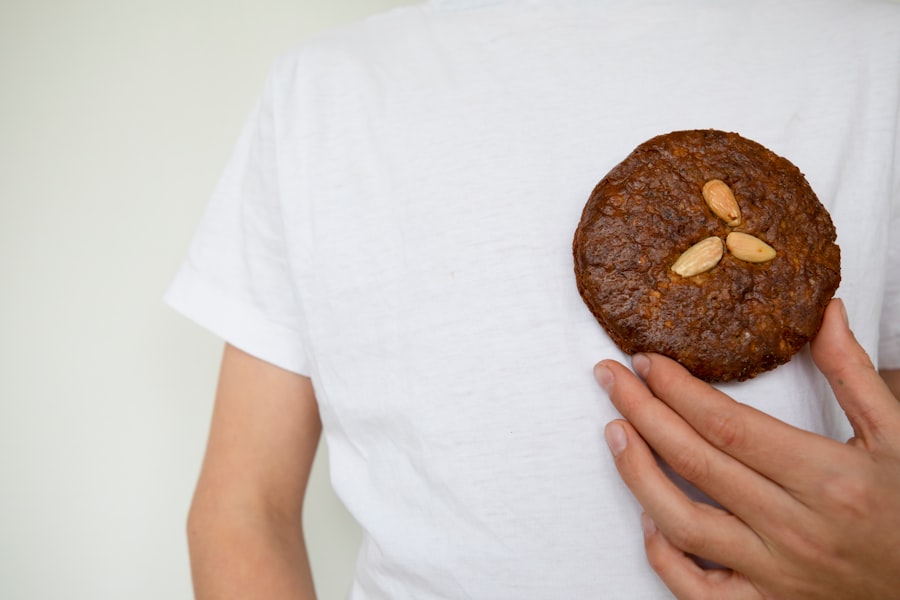Fatty liver disease, often referred to as hepatic steatosis, is a condition characterized by the accumulation of excess fat in liver cells. This condition can arise from various factors, including lifestyle choices and dietary habits. As you navigate your daily life, it’s crucial to understand how your choices can impact your liver health.
The liver plays a vital role in your body, processing nutrients, detoxifying harmful substances, and producing bile for digestion. When fat builds up in the liver, it can lead to inflammation, scarring, and even more severe liver diseases if left unaddressed. Understanding the causes of fatty liver is essential for prevention and management.
While genetics can play a role, lifestyle factors such as diet and physical activity are significant contributors. By recognizing the habits that may lead to fatty liver, you can take proactive steps to protect your liver health. This article will explore various dietary and lifestyle factors that contribute to fatty liver disease, providing you with insights to make informed choices for a healthier future.
Key Takeaways
- Fatty liver disease is a condition where fat accumulates in the liver, leading to inflammation and potential liver damage.
- Excessive consumption of sugar and high fructose corn syrup can contribute to the development of fatty liver disease.
- Lack of fiber in the diet can lead to poor digestion and increased fat accumulation in the liver.
- Overconsumption of processed foods, which are high in unhealthy fats and sugars, can contribute to fatty liver disease.
- Low intake of healthy fats, such as those found in avocados and nuts, can negatively impact liver health.
Excessive Consumption of Sugar and High Fructose Corn Syrup
One of the primary culprits behind fatty liver disease is the excessive consumption of sugar, particularly in the form of high fructose corn syrup (HFCS). This sweetener is commonly found in many processed foods and sugary beverages. When you consume too much sugar, your liver converts the excess into fat, leading to fat accumulation in liver cells.
This process can be insidious; you may not even realize how much sugar you’re consuming daily, especially if you frequently indulge in sodas, candies, and baked goods. Reducing your intake of sugar and HFCS is a crucial step toward maintaining a healthy liver. You might consider reading food labels more carefully and opting for whole foods that are naturally low in sugar.
By making small changes, such as swapping sugary drinks for water or herbal teas, you can significantly decrease your sugar intake. This shift not only benefits your liver but also contributes to overall health and well-being.
Lack of Fiber in the Diet

Fiber plays a vital role in digestive health and can significantly impact your liver function. A diet low in fiber can lead to various health issues, including fatty liver disease. When you consume insufficient fiber, your body may struggle to eliminate toxins and excess fats effectively.
This can result in fat accumulation in the liver, exacerbating the risk of developing fatty liver disease. To combat this issue, it’s essential to incorporate more fiber-rich foods into your diet. Whole grains, fruits, vegetables, legumes, and nuts are excellent sources of dietary fiber.
By making a conscious effort to include these foods in your meals, you can support your liver’s ability to process fats and toxins efficiently. Not only will this help reduce the risk of fatty liver disease, but it will also promote better digestion and overall health.
Overconsumption of Processed Foods
| Metrics | Data |
|---|---|
| Percentage of daily calories from processed foods | 40% |
| Number of processed food items consumed per week | 15 |
| Health risks associated with overconsumption | Obesity, heart disease, diabetes |
| Annual spending on processed foods | 2000 |
Processed foods are often high in unhealthy fats, sugars, and additives that can contribute to fatty liver disease. When you rely heavily on convenience foods—such as frozen dinners, snacks, and fast food—you may inadvertently consume excessive amounts of unhealthy ingredients that put your liver at risk. These foods are typically low in nutrients and fiber while being high in calories, leading to weight gain and increased fat accumulation in the liver.
To improve your liver health, consider reducing your reliance on processed foods. Instead, focus on preparing meals from scratch using fresh ingredients. This not only allows you to control what goes into your food but also encourages healthier eating habits overall.
By prioritizing whole foods over processed options, you can nourish your body while protecting your liver from the harmful effects of unhealthy diets.
Low Intake of Healthy Fats
While it may seem counterintuitive, consuming healthy fats is essential for maintaining optimal liver function. Healthy fats—such as those found in avocados, nuts, seeds, and olive oil—can help reduce inflammation and support overall health. Conversely, a diet low in healthy fats can lead to an imbalance in your body’s fat metabolism, contributing to fatty liver disease.
Incorporating healthy fats into your diet doesn’t mean you should overindulge; moderation is key. You might start by adding a handful of nuts to your morning oatmeal or drizzling olive oil over your salads. These small changes can make a significant difference in how your body processes fats and supports liver health.
By embracing healthy fats as part of a balanced diet, you can help protect your liver from the risks associated with fatty liver disease.
Inadequate Protein Intake

Protein is another critical component of a balanced diet that plays a significant role in liver health. Your body requires protein for various functions, including repairing tissues and producing enzymes necessary for digestion. An inadequate protein intake can hinder your liver’s ability to function optimally and may contribute to fat accumulation within the organ.
To ensure you’re getting enough protein in your diet, consider incorporating a variety of protein sources such as lean meats, fish, eggs, dairy products, legumes, and plant-based proteins like tofu or tempeh. By diversifying your protein sources, you not only support your liver but also promote overall health and well-being. Striking the right balance of protein in your meals can help maintain a healthy weight and reduce the risk of developing fatty liver disease.
Excessive Alcohol Consumption
Alcohol consumption is one of the most well-known risk factors for fatty liver disease. When you drink excessively, your liver becomes overwhelmed with processing alcohol, leading to inflammation and fat accumulation. It’s essential to recognize that even moderate drinking can have adverse effects on some individuals, particularly those with pre-existing conditions or genetic predispositions.
If you enjoy alcohol but want to protect your liver health, consider moderating your intake or opting for alcohol-free alternatives when possible. Being mindful of how much you drink can significantly reduce the risk of developing fatty liver disease and other alcohol-related health issues. Remember that prioritizing your health means making informed choices about what you consume.
Lack of Physical Activity
Physical activity is crucial for maintaining a healthy weight and supporting overall metabolic function. A sedentary lifestyle can contribute to weight gain and increase the risk of developing fatty liver disease. When you engage in regular exercise, you help your body burn off excess fat and improve insulin sensitivity—both essential factors for preventing fat accumulation in the liver.
To incorporate more physical activity into your routine, consider finding activities that you enjoy. Whether it’s walking, cycling, swimming, or dancing, engaging in regular exercise can make a significant difference in your overall health. Aim for at least 150 minutes of moderate-intensity aerobic activity each week combined with strength training exercises on two or more days.
By prioritizing physical activity, you not only support your liver but also enhance your overall quality of life.
Consuming Too Many Refined Carbohydrates
Refined carbohydrates—such as white bread, pastries, and sugary cereals—can contribute to weight gain and increase the risk of fatty liver disease. These foods are often stripped of their natural fiber and nutrients during processing, leading to rapid spikes in blood sugar levels. When consumed excessively, refined carbohydrates can lead to insulin resistance and fat accumulation in the liver.
To promote better liver health, consider replacing refined carbohydrates with whole grains and complex carbohydrates like brown rice, quinoa, and whole-grain bread. These alternatives provide essential nutrients and fiber that support healthy digestion and metabolic function. By making this simple switch in your diet, you can help reduce the risk of developing fatty liver disease while enjoying a more balanced approach to eating.
Ignoring Portion Sizes
Portion control is an often-overlooked aspect of maintaining a healthy diet that directly impacts liver health. Overeating—even healthy foods—can lead to weight gain and increased fat accumulation in the liver. It’s essential to be mindful of portion sizes when preparing meals or snacking throughout the day.
To practice portion control effectively, consider using smaller plates or measuring out servings when cooking at home. Being aware of how much you’re consuming can help prevent overeating and promote healthier eating habits overall. Additionally, listening to your body’s hunger cues can guide you toward making better choices regarding portion sizes.
By being mindful of how much you eat, you can support your liver health while enjoying a balanced diet.
The Importance of a Balanced Diet for Liver Health
Ultimately, maintaining a balanced diet is crucial for supporting optimal liver health and preventing fatty liver disease. A well-rounded diet rich in whole foods—such as fruits, vegetables, whole grains, lean proteins, and healthy fats—provides the nutrients necessary for proper liver function. By prioritizing balance over restriction or fad diets, you create a sustainable approach to eating that benefits not only your liver but also your overall well-being.
As you reflect on your dietary choices and lifestyle habits, remember that small changes can lead to significant improvements over time. By being proactive about what you eat and how you live, you empower yourself to take control of your health journey.
Fatty liver disease is a growing concern, often exacerbated by common dietary mistakes. Consuming excessive amounts of sugar and refined carbohydrates can lead to the accumulation of fat in the liver, contributing to this condition. Additionally, a diet high in saturated fats and processed foods can further aggravate liver health. For more insights into dietary habits that can impact liver health, you can read a related article on this topic by visiting Explore Senior Health. This resource provides valuable information on how to make healthier dietary choices to prevent and manage fatty liver disease.
WATCH THIS! 🧃The 60-Year Liver Lie: Why Your “Healthy” Juice Is Destroying Your Liver
FAQs
What is fatty liver disease?
Fatty liver disease is a condition where excess fat builds up in the liver, leading to inflammation and potential damage to the liver cells.
What are some dietary mistakes that can cause fatty liver?
Some dietary mistakes that can cause fatty liver include consuming high amounts of sugar, refined carbohydrates, and unhealthy fats. Excessive alcohol consumption can also contribute to fatty liver disease.
How does excessive sugar intake contribute to fatty liver?
Excessive sugar intake, especially from sources like sugary drinks and processed foods, can lead to an increase in fat accumulation in the liver, contributing to fatty liver disease.
What role do unhealthy fats play in the development of fatty liver?
Consuming high amounts of unhealthy fats, such as trans fats and saturated fats, can contribute to the development of fatty liver disease by increasing fat accumulation in the liver.
Can dietary changes help prevent or reverse fatty liver disease?
Yes, making dietary changes such as reducing sugar intake, avoiding unhealthy fats, and consuming a balanced diet rich in fruits, vegetables, and lean proteins can help prevent and even reverse fatty liver disease.
